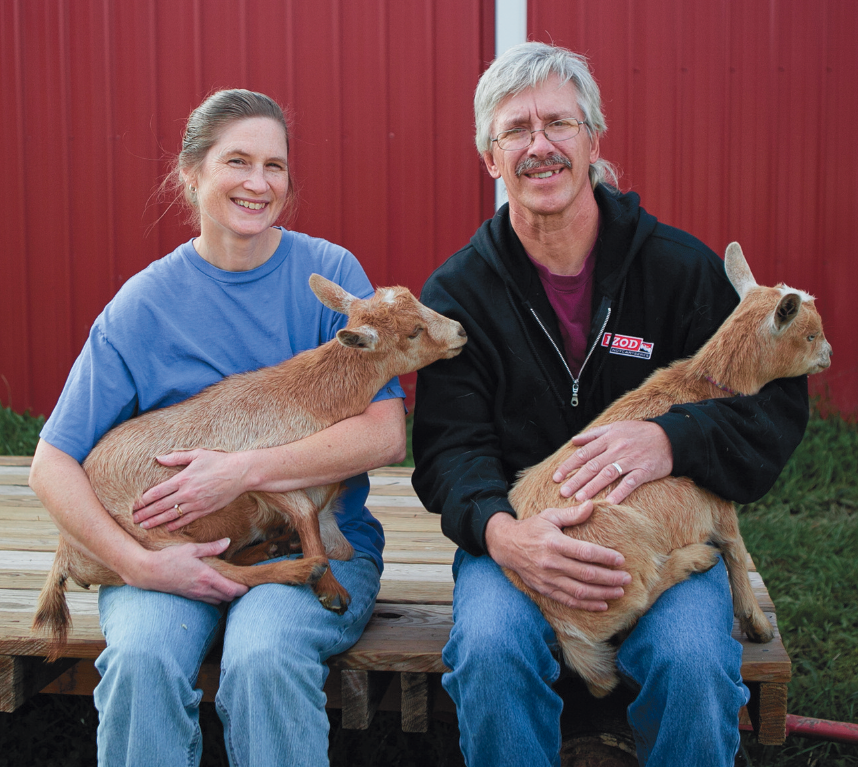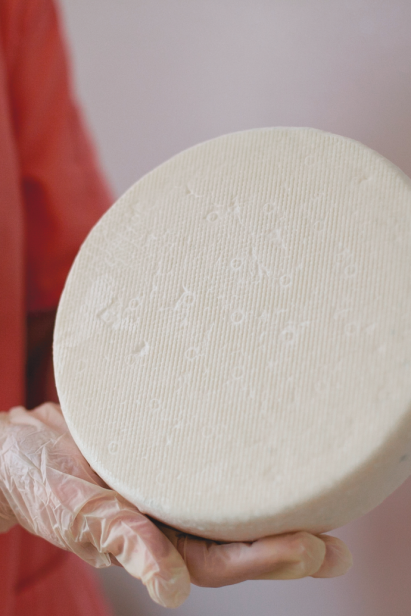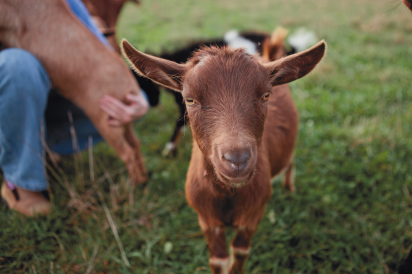The Science of Chevre
Most would agree there's an undeniable art to cheese making. But there's a science to it too, and Kristy Kikly has learned the balancing act.
Kikly, a fulltime scientist with a background in biology, is behind Indiana's newest goat cheese producer: Caprini Creamery. Along with her husband and 15-year-old daughter, Kikly crafts high-quality chevre and feta at their family farm near Spiceland, about 40 miles east of Indianapolis.
Though they now own nearly 200 goats and make 70 pounds of cheese each week, cheese making wasn't always the plan. In 2007, Kikly and her family purchased farmland where they eventually made their home and kept goats and llamas as pets. Over time, she and her husband began discussing ways to make the jump from being pet owners to business owners.
"We thought about fibers at first," says Kikly. "With goats and especially with llamas, that was our first consideration."
After toying with the idea of raising the animals for their coats, Kikly began researching what it would it would look like to produce goat cheese.
"I got some books and started playing around in the kitchen," she says. "I also enrolled in cheese making courses up in Wisconsin."
Relying on her science background throughout the process, Kikly was able to begin making small batches of goat cheese that, to her, had creamier notes than others being produced locally.
"We're raising Nigerian Dwarf goats, which have a higher milk fat content," Kikly explains. "You get a creamier cheese that way."
Confident in her product, Kikly began making larger quantities of cheese and contacting retailers with a track record of supporting local producers. Caprini Creamery (named after the Italian term for "baby goat") was soon up and running at full speed, with products appearing on shelves earlier this year.
Caprini's chevre and feta can be found at places like Good Earth in Indianapolis and Bloomingfoods in Bloomington, and through Green BEAN Delivery.
The goat cheese is available in five varieties, including plain, rosemary, cracked pepper, honey and maple cinnamon. Caprini produces around 40 pounds of chevre and 30 pounds of feta every week. Kikly is experimenting with different types of cheeses now, including aged varieties.
"We've got some batches of tomme going, which we hope to be able to offer early next year," she says.
Kikly, who maintains her fulltime job as a scientist, relies on help from her husband and daughter to keep operations running smoothly at Caprini.
"The day starts pretty early," she says. "My husband milks the goats twice a day – once at 6:30am and again at 6:30 in the evening."
The dairy consists of a milking parlor, a milk house where the refrigerated milk is stored and a pasteurization room.
"The dairy operates on a seasonal basis," Kikly explains, which follows the patterns of the goats' natural rhythms. "The does [female goats] kid in the spring, and then we milk until winter. The goats rest for the winter before they kid again and we start the process over."
With nearly 200 goats on the farm, Kikly makes sure they stay healthy and active, with plenty of access to pastures. "The health of our animals is important to us. We try to raise them as naturally as possible," she says. The goats are hormone-free and only given antibiotics when treated for illness.
Supporting small, local producers has benefits that reach beyond the economy and sense of community. As Kikly points out, it's good for the palate, too.
"All of our cheeses are made fresh," she says. "We handle the milk very gently for the best possible flavor. It's not traveling hundreds of miles to get to you, so it's naturally going to have a much fresher taste."






